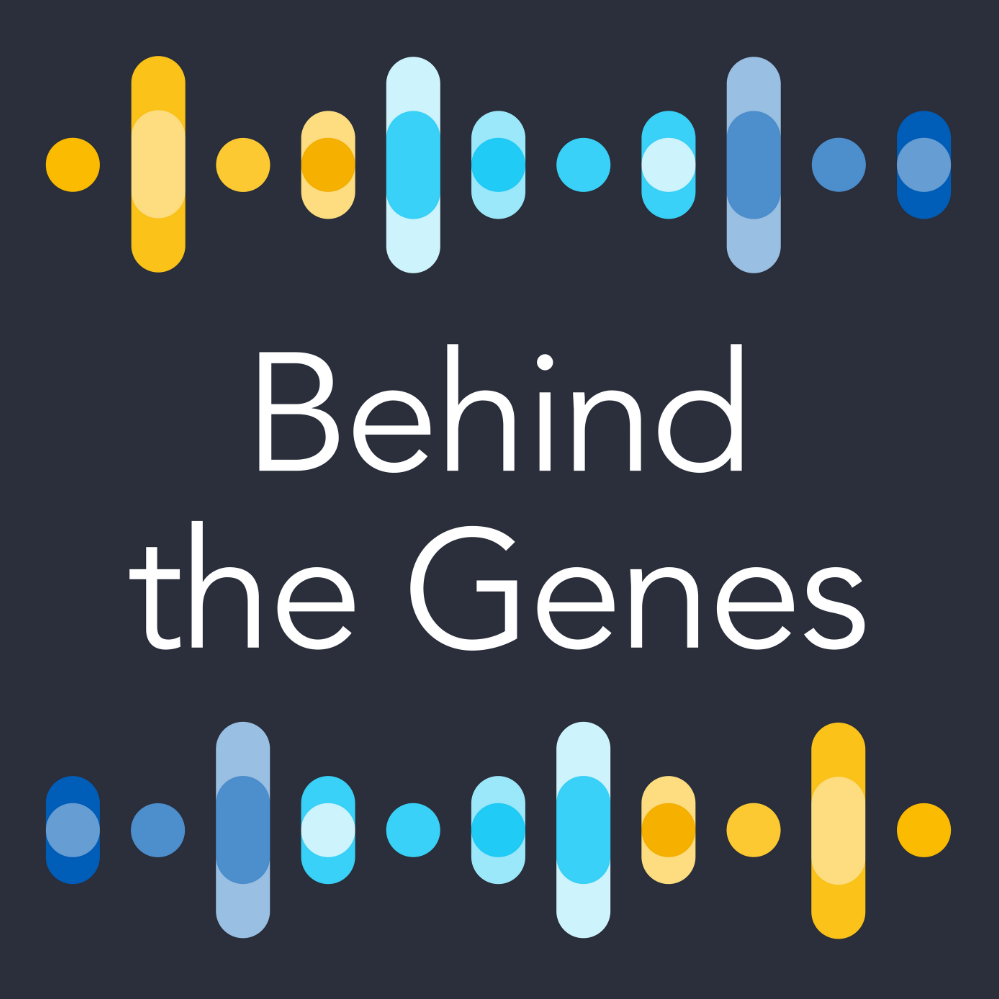Will Navaie: Genomics 101 - What is 'ethics'?
Description
In this explainer episode, we’ve asked Will Navaie, Head of Ethics Operations at Genomics England, to explain what ethics is and why it's important, in the context of genomics.
You can also find a series of short videos explaining some of the common terms you might encounter about genomics on our YouTube channel.
If you’ve got any questions, or have any other topics you’d like us to explain, feel free to contact us on [email protected].
Want to find out more? Check out the blog 'Genomics 101: What is ethics?'.
You can read the transcript below or download it here: https://files.genomicsengland.co.uk/documents/Podcast-transcripts/What-is-ethics.docx
Naimah: What is ethics? Today I’m joined by Will Navaie, who’s Head of Ethics Operations at Genomics England, to find out more.
Will: Ethics is part of philosophy, and it’s part of philosophy that talks through a set of moral principles that govern our behaviour and our conduct. So, it might be thinking about whether something is good or bad. It might be thinking about whether something is good or better, or whether something is bad and worse. So, it’s about values and how we demonstrate those values kind of in a moral framework. So, I like to think of ethics as, just because you can do something, it doesn’t mean that you should do something. So, the law dictates to us what we can do, but ethics then talks about actually you need to look at the context around a law and to see whether something is reasonable, and so ethics to me is the should. So, should we do something? Just because we can do something, it doesn’t mean that we necessarily should do that thing.
So, in medical ethics, we have four pillars or four areas that we concentrate on. One is justice, and that’s making sure that something is fair and equitable and inclusive. And equity being the key here, so equity recognises that individuals have different circumstances, and equity allocates opportunities based on the needs of the individual. So, it’s not about giving everybody the same, but it’s recognising that to get an equal outcome for something, that some people will require more of something because of their set of circumstances. We also have autonomy, and autonomy in medical ethics is a bit of a focus sometimes, and what that is, is giving choices and respecting people’s decisions around that choice. Consent, we talk about a lot in medical ethics, but it is not the be all and end all. It’s really important, but actually it’s one principle among many that kind of make up ethics.
Another one of those four is beneficence, and that’s talking about everything we do must create benefit for people, and that benefit might be at an individual level, it might be at a societal level, so there’s lots of different ways of realising benefit. And the other, which is the flipside of that, is non-maleficence, and that’s making sure that everything we do doesn’t cause any harm to people.
Naimah: Okay, and then so if we’re thinking about ethics in the context of genomics, what does that mean?
Will: So, those four principles that we just talked about are applied to genomics as much as anything else, so there’s no exceptionalism to those, so we live by those four pillars, if you like. But what does make things complicated in genomics is that genomic data is not just about you. It’s not just about an individual. It’s about your family, it’s about your future family, and what that means is that we need to take those four pillars, those four areas, and look at them through a lens of a group rather than an individual. Where it becomes more complicated is the kind of interface between the law and ethics, and the way that the laws are written in this country and in healthcare are very much around individual rights, and that becomes really tricky when the decision making of an individual can affect other people in their family. And so, what we try to do is to think about how
More Episodes
In this explainer episode, we’ve asked James Duboff, Strategic Partnerships Director at Genomics England, to explain how genomic data can be used in drug discovery.
You can also find a series of short videos explaining some of the common terms you might encounter about genomics on our YouTube...
Published 05/22/24
Published 05/22/24
Ethical considerations are essential in genomic medicine and clinical practice. In this episode, our guests dive into the details of ethical principles, highlighting how they can be brought into practice in the clinic, whilst considering the experiences and feelings of patients and...
Published 05/15/24


